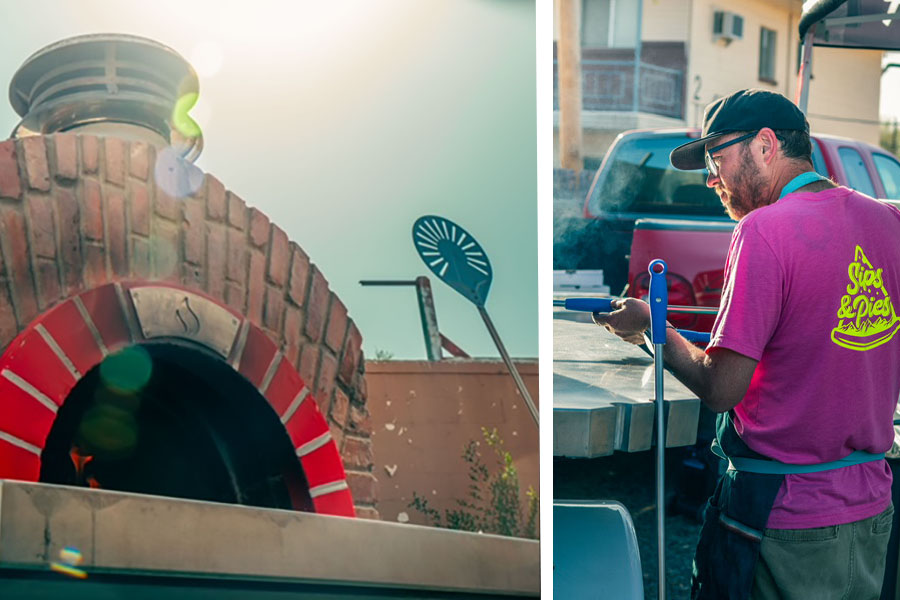 Seven tips for renegotiating your lease
Seven tips for renegotiating your lease
While the recession is coming to an end, many operators are still struggling. The good news? Your landlord is feeling the squeeze, too. According to the National Association of Realtors, retail vacancy rates nationwide were at 12.6 percent in the fourth quarter of 2011, and retail rents actually declined during the year. With empty space everywhere, it’s easier than ever to renegotiate your lease.
Real estate agent Jim Ronding has worked with several restaurants and recently sold a building to VIP Pizza in Superior, Wisconsin. He says the downturn has made real estate deals easier for tenants.
“There are more vacancies now than there have been in the last five years,” Ronding says, adding that it’s definitely a buyers market.”

How much can you expect to save? While that depends on your location (retail vacancies in San Francisco, for example, were only 3.7 percent last year), smart operators in most areas are in a position to save significantly. Ronding, for instance, has seen local rents fall over 20 percent from peak years.
There’s “some of the retail where the high-end traffic is $24 a foot,” Ronding says. “If you’re paying that much in rent per foot you have to be honest with the landlord. $24 a foot space is probably now $19 a foot.”
So how should you as an operator go about approaching your landlord? Here are tips for making sure you get the best deal you can.
When it comes to leasing, timing is crucial. If your pizzeria is struggling, you want to move quickly. Brad Erickson, owner of Duluth, Minnesota’s Vitta Pizza, says landlords are willing to cut their tenants a break immediately to save themselves the hassle of finding someone new.

“A lot of landlords will renegotiate just not to have a new tenant in there,” Erickson says. “And (high turnover) is a black eye on the space. They don’t want that. They want stability and good tenants that pay their rent and don’t give them a lot of headaches.”
Have an honest talk with your landlord, and be ready to prove your case with your balance sheets. It’s embarrassing to admit that you’re not doing well, but your landlord is on your side and probably willing to accommodate you.
If you’ve been successful in spite of the recession, however, you won’t be able to use the pity approach. Instead, run down the clock to around 18 months before your lease is set to expire before starting talks. That way, you’re close enough that your landlord will start feeling the heat, but not so close that you can’t walk away from the deal and find a new place if you need to.
“The smart ones are going out there before their lease is up, with plenty of time,” Ronding says. “If you do it with three months to go, they know you’re not going anywhere.”
Any landlord would rather work with a good tenant than a bad one. Do you pay your rent on time? Are you easy to deal with? If not, start thinking about ways you can improve before you start throwing down requests.
“If you’re going to attempt to renegotiate your rent, you’ve got to know your landlord,” Erickson says, “How much do they value you as a tenant?”
Once you’ve nailed the basics, little niceties like holiday cards or a free pizza dinner for your landlord’s family can further smooth out rough edges. And don’t be afraid to play two landlords against each other. “You have to know your market,” Minnesota-based real estate lawyer Paul Kilgore says. “I would never tell a tenant not to shop around. If it’s a tenant’s market it can be to their advantage.”

Start talking to other businesses and look for places you could move if you needed to. Even if you’re hoping to stay in your existing space, it’s to your advantage to look at other options.
“They’ve got to be able to convince the landlord that they’ve got other options,” Kilgore says. “For example, if there’s a new shopping area that’s being constructed nearby, the landlord may have to worry.”
Once you’ve gotten your landlord on your side and learned your options, think about the ways you could structure a deal. The most common approach is a cut in rent in exchange for a lease extension — you stay seven more years and your landlord cuts your rent. But now is the time to consider a package deal. Could you shovel the sidewalks in exchange for two more parking spaces? Would your landlord be willing to build you an office in exchange for another year on the lease? Since it will be several years until your next lease renewal, make the most of the opportunity while you have it.
A weak economy means strong tenants, and that can translate into major savings. So find a good lawyer, consider your options, and strike a deal with your landlord. After all, you’ve probably had to cut prices for your customers —why shouldn’t you get a break too?
“It’s worse than it was last year, but prices are so low that people are starting to get a little bit of faith here,” Ronding says. “There’s some good deals out there. People are still going to go out and have a pizza.”
Three Big Mistakes when Signing a Lease
- Not getting counsel. Since a lease is such a big investment you need a good commercial real estate agent, a quality real estate lawyer, or both, says Brad Erickson, owner of Duluth, Minnesota’s Vitta Pizza.
“Especially people on a tight budget, they may be apt not to hire a lawyer,” Erickson says. “They’ll think, ‘No, that’s too expensive.’ That could save you thousands, even tens of thousands of dollars in the long run.”
- Not looking carefully at the lease. Especially if lawyers are involved, lease language can be quite hostile to tenants. Landlords can ask for personal guarantees or even prevent you from selling your business. So, it pays to look carefully at every aspect of your agreement—and then fight for a good deal.
“Assume nothing,” Erickson says. “It sounds so simple but it isn’t. My lease negotiation didn’t happen overnight — it probably took two months. You’ve got to put your fighting gloves on.”
- Being unrealistic. While it’s good to drive a hard bargain, make sure not to overestimate your position. Even in a down market, newer or less stable operators shouldn’t expect to get prime terms. You may have to start smaller than you think.
“I think the tenant has to be realistic about how long the term of the lease is,” says real estate lawyer Paul Kilgore. “If it’s a start up business maybe signing on to a 10-year lease isn’t such a good idea.”
Robert Lillegard is a Duluth, Minnesota, freelance writer.
 Seven tips for renegotiating your lease
Seven tips for renegotiating your lease





